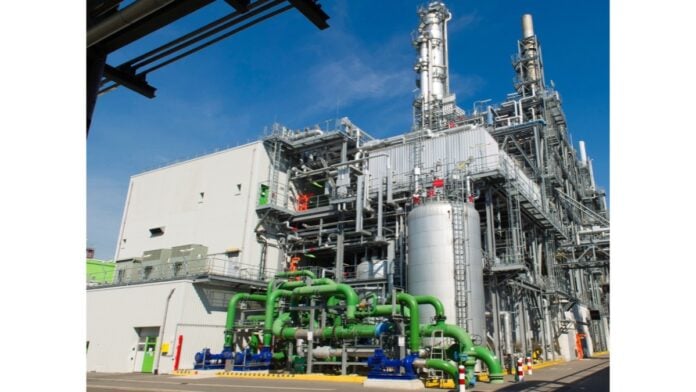Basf Aroma Ingredients has launched LMenthol FCC rPCF, its first reduced carbon footprint product (rPCF). Further rPCF product launches are planned to help customers achieve their ambitious Scope 3 carbon reduction targets.
The German chemist's rPCF flavor ingredients offer a reduction in product carbon footprint of around 10 to 15 % compared with conventional Basf products. The carbon footprints of products in Basf's rPCF range are calculated in accordance with the guidelines of the "Together for Sustainability" (TfS) initiative. TÜV Rheinland has certified that the calculation method used by Basf complies with this standard.
"Bringing L-Menthol FCC rPCF to market represents an important milestone in our commitment to sustainable development, says Steffen Götz, Vice-President of Aroma Ingredients at Basf. The addition of rPCF products to our portfolio makes us the first aroma ingredients manufacturer that enables its customers to actively pursue CO2 emission reduction beyond their own premises."
Collaboration between Basf and Colgate-Palmolive
Colgate-Palmolive was one of the first customers to implement Basf's new product offering. "Colgate-Palmolive aims to achieve net zero carbon emissions by 2040, with the majority of these emissions associated with the raw materials and packaging materials we source from suppliers. The transition to Menthol with a reduced carbon footprint is the result of effective collaboration between Colgate-Palmolive and Basf teams, helping us to make significant progress towards our goal while maintaining the highest standards of product quality."says Lauren Richardson, Chief Procurement Officer at Colgate-Palmolive Company.
Mass balance approach
Basf uses a mass balance approach at its Verbund sites for the production of rPCF flavor ingredients: a defined share of conventional raw materials or utilities is replaced by raw materials or utilities with a reduced PCF. This share is allocated to rPCF products and reduces their carbon footprint accordingly.
The production process remains unchanged, enabling customers to switch to rPCF products without having to requalify. " By deploying the mass balance approach, we can improve the durability of our products while ensuring that customers can count on the same quality they're used to with our conventional products."explains Dr Cordula Mock-Knoblauch, Head of Sustainability Accelerator, Basf Aroma Ingredients.
Basf's rPCF portfolio will grow in line with customer demand. The focus will be on high-volume products because of their ability to significantly reduce our customers' Scope 3 emissions. In addition to L-Menthol FCC rPCF, Citronellol rPCF and Geraniol rPCF are scheduled for launch in 2025.
Photo: Basf SE - L-Menthol production plant at Basf's Ludwigshafen site, Germany, also producing L-Menthol FCC rPCF from 2024.








